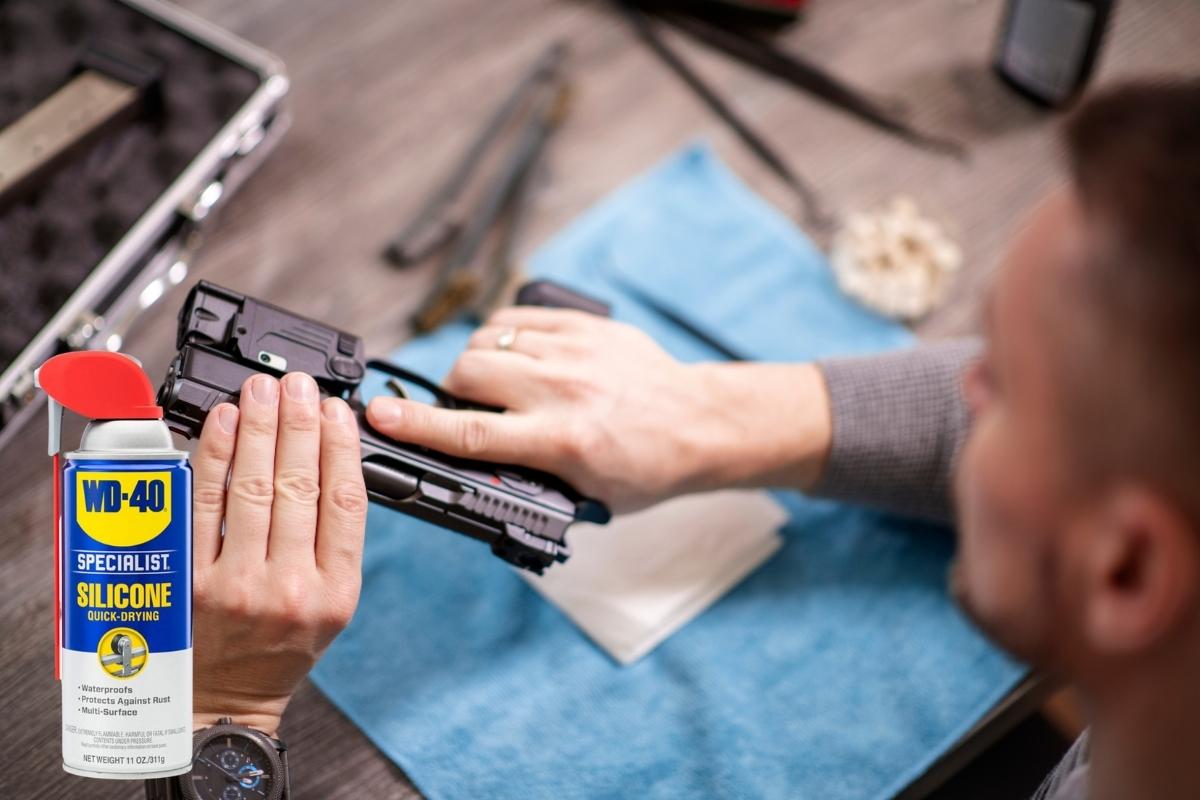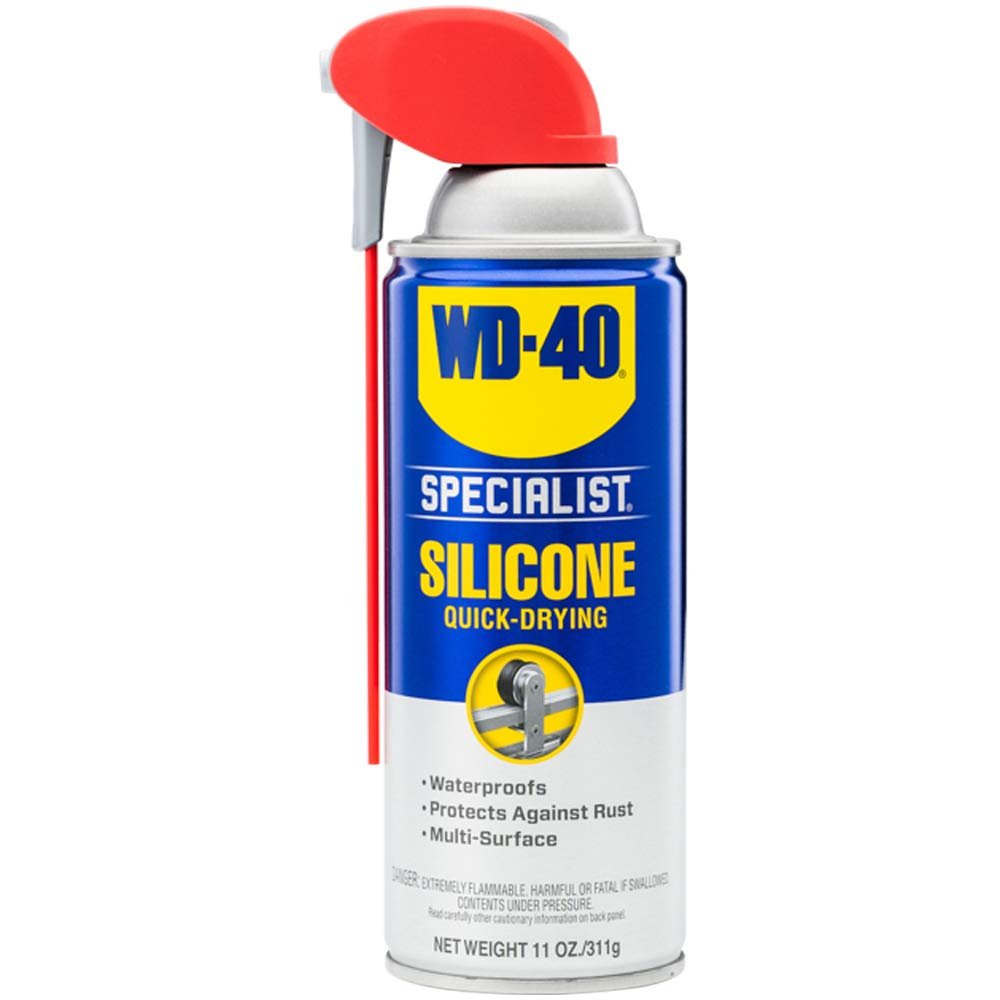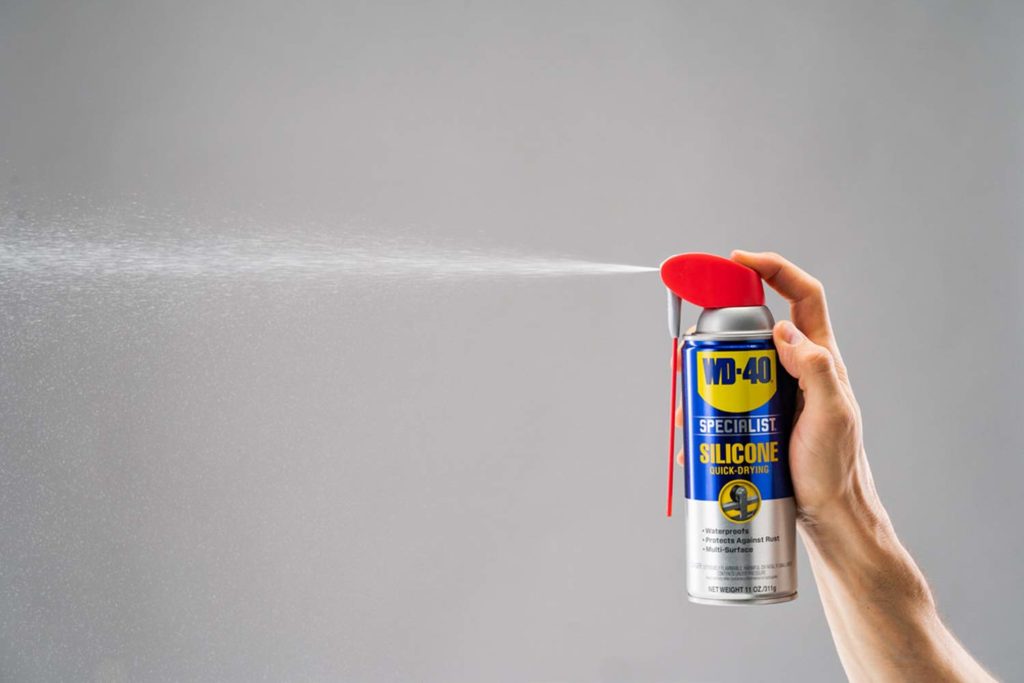When it comes to firearm maintenance, proper cleaning and lubrication are critical. Many gun owners have wondered whether WD-40, a popular household product with various applications, is suitable for cleaning guns.
The answer to the question “Should You Use WD-40 to Clean Your Guns”, however, is more complicated than a simple yes or no. Below, we’ll explore the pros and cons of using WD-40 for gun cleaning and offer alternative solutions for maintaining your firearm.
What is WD-40?
WD-40 is a water-displacing spray often used for lubricating, cleaning, and protecting metal surfaces from rust and corrosion. It was initially developed for the aerospace industry but has since found applications in households, workshops, and garages worldwide.
How Does WD-40 Interact With Firearms?
When you apply WD-40 to your firearm, its primary roles are as a basic cleaner and a short-lived rust inhibitor. Below are the key ways it interacts with your gun:
Cleaning Capabilities
The formula can dissolve certain kinds of dirt and light surface rust, making it convenient for quick external cleaning tasks. However, it lacks the specialized composition needed to clean areas prone to fouling and carbon buildup, like the barrel or firing chamber.
Anti-Rust Properties
WD-40 creates a thin film on metal surfaces, offering temporary protection from rust. However, this protective layer is not particularly durable and tends to break down over time, reducing its effectiveness for long-term rust prevention.
Lubrication Limits
While it does provide a degree of lubrication, WD-40 isn’t formulated to cope with the extreme conditions of heat and friction that firearms experience. For this reason, dedicated gun oils and greases are generally more appropriate.
Residual Issues and Safety Risks
Applying WD-40 can accumulate a sticky residue on your firearm, which may attract dirt and other contaminants. This could compromise the gun’s functionality over an extended period. Moreover, the product is flammable, adding another layer of risk when used on firearms.
WD-40 Cleaning Process
If you still choose to use WD-40 for cleaning your guns despite the recommendations, it’s crucial to do so cautiously. Here are the top 5 steps in the cleaning process:
Step 1: Safety First
Before you begin, make sure your gun is unloaded. Remove the magazine and double-check to ensure that the chamber is empty. Place the gun on a flat, clean surface.
Step 2: Disassemble the Firearm
Disassemble your gun into its main components. Typically, this means separating the slide, barrel, and frame. Consult your firearm’s manual for specific instructions on disassembly.
Step 3: Apply WD-40 Sparingly
Spray a small amount of WD-40 onto a clean cloth or the metal parts you wish to clean. Avoid applying WD-40 to wooden parts, which may damage the wood finish.
Step 4: Wipe Down Metal Surfaces
Use the cloth to wipe down all accessible metal parts of the gun. This will help remove dirt, grime, and some surface-level corrosion. Be sure to reach all corners and crevices where dirt may accumulate.
Step 5: Dry and Reassemble
After wiping down, let the gun sit for a few minutes, allowing the WD-40 to evaporate somewhat. Wipe off any excess, then reassemble your firearm. Test the action to make sure everything moves smoothly.
What Do Professionals Think About WD-40 for Cleaning Guns?
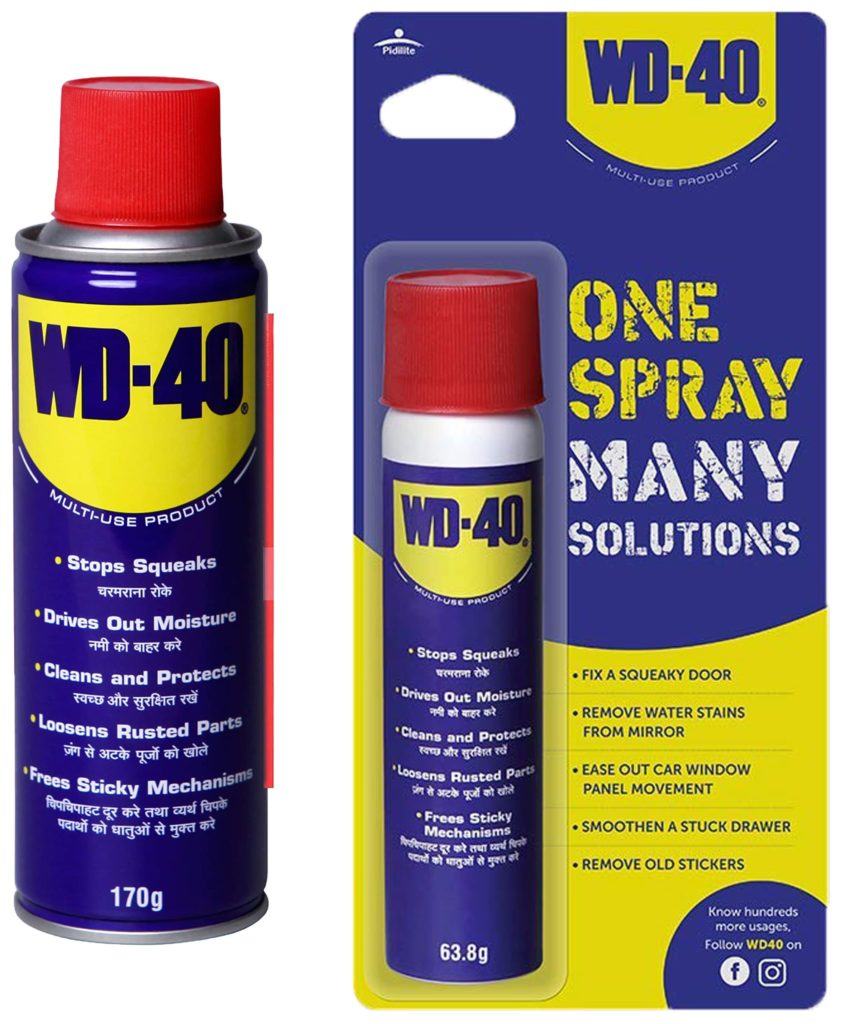
Most firearms maintenance and gunsmithing professionals advise against using WD-40 for cleaning guns. They cite several reasons for this:
- Residue Build-up: WD-40 can leave behind a gummy residue that can impair firearm performance over time.
- Inadequate Lubrication: WD-40 is not formulated to provide the level of lubrication that a firearm requires, especially in high heat and friction conditions.
- Flammability: Given that WD-40 is flammable, its use poses an inherent risk when applied to a tool that produces heat and sparks.
- Specialized Alternatives: Professionals often recommend specialized gun-cleaning products formulated to meet the unique needs of firearms, such as CLP, gun oils, and solvents.
The Best Alternatives to WD-40
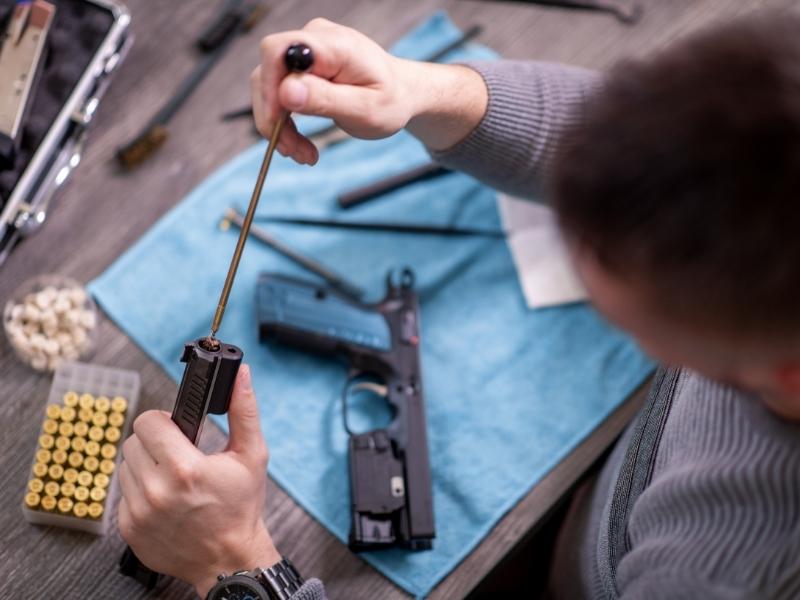
If you’re looking for more effective and specialized solutions for firearm maintenance, several alternatives are far better suited than WD-40. Here are some:
CLP (Cleaner, Lubricant, Protectant)
CLP is a multi-purpose product specifically designed for firearms. It cleans by removing carbon deposits and other fouling, lubricates moving parts to reduce friction and wear, and protects against rust and corrosion.
CLP has been widely adopted by military and law enforcement agencies, making it a trusted choice for gun maintenance.
Gun Oil
Specialized gun oils are engineered to provide superior lubrication and protection against rust. Unlike WD-40, these oils are formulated to handle the high heat and friction experienced by firearms, making them ideal for long-term care and maintenance.
Gun Solvent
Specialized gun solvents are available for those looking to give their guns a deep clean. These solvents are designed to dissolve and remove stubborn fouling, carbon buildup, and powder residues, making them highly effective for cleaning barrels and chambers.
Ballistol
Ballistol is a multi-purpose cleaner, lubricant, and protectant. It is non-toxic, biodegradable, and works on metal and wooden components.
Ballistol has been around for over a hundred years and is often used by hobbyists and professionals for gun cleaning and maintenance.
FrogLube
Another modern alternative is FrogLube, a bio-based product made from food-grade ingredients. It’s a non-toxic solution that cleans, lubricates, and protects firearms. FrogLube is favored by some shooters due to its eco-friendly properties and pleasant minty smell.
Should You Use WD-40 to Clean Your Guns: FAQs
Answer: Yes, WD-40 is flammable, and this poses a safety concern, especially since firearms produce sparks and heat during operation.
Answer: While it’s possible to use WD-40 for a quick, temporary cleaning, it is not advisable for long-term firearm maintenance due to the reasons mentioned above.
Answer: WD-40 is not specifically harmful to metal, but it can leave a residue that attracts dirt and grit, leading to accelerated wear and tear on your firearm.

